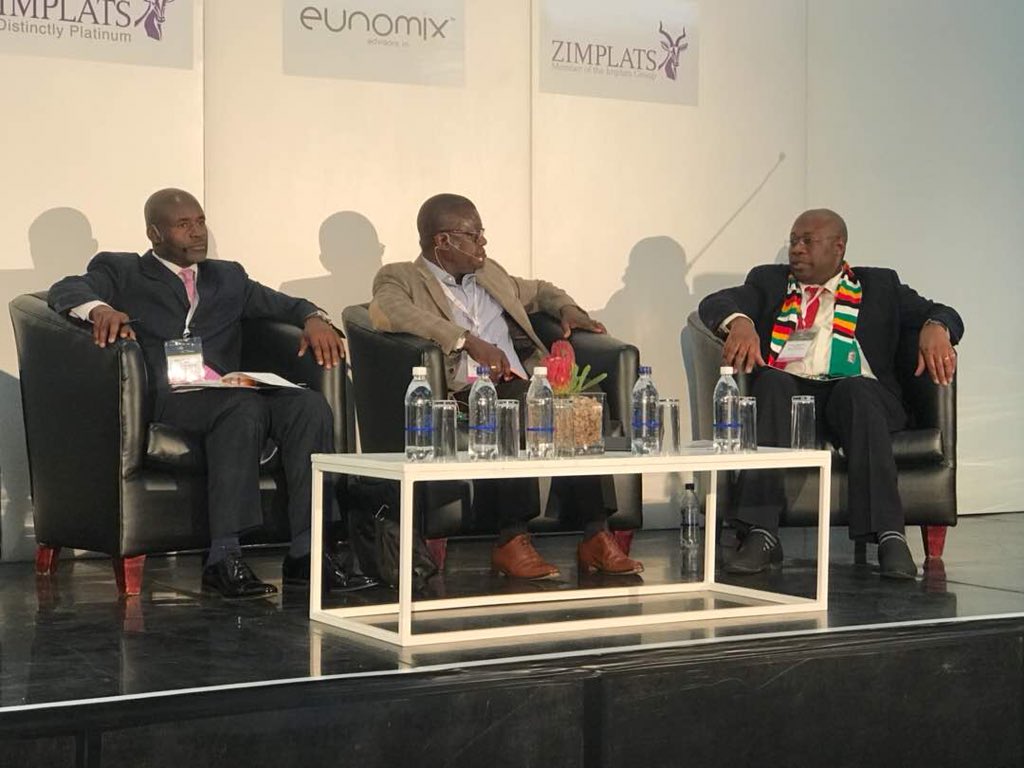Zimbabwe will finalise amendments to its mines act that have been in abeyance for 17 years in the coming few months as part of the government’s drive to create regulatory certainty and attract mining investment, Mines and Mining Development Minister Winston Chitando said on Monday, the
BusinessDay reported.
In a sign of the change in government since the departure of Robert Mugabe after 37 years in power, the new president, Emmerson Mnangagwa, has indicated that after decades of deepening scepticism and wariness about investing in Zimbabwe the country is open for business and wants to restart the economy.
One of the key elements of that plan is kick-starting the mining sector, which, apart from Zimplats, which is 80% owned by SA’s Impala Platinum, and the platinum industry generally, is largely moribund, under-capitalised and old fashioned due to poor regulatory decisions, an unfriendly approach towards foreign investors and a challenging sociopolitical environment.
Chitando said apart from the platinum and diamond sectors, all other minerals-extraction operations could be 100% foreign owned. The platinum and diamond sectors must have 51% local ownership, but he had the discretion to change those levels and requirements.
He pointed out that any company investing $100m or more in the mineral sector could negotiate tax rates, royalties and ownership structures directly with the government.
The ministry would also unveil development policies for individual minerals in May, taking into account feedback from numerous talks with the local chamber of mines and individual companies, according to Chitando. He said these policies would effectively outline the government’s requirements for beneficiation of minerals within Zimbabwe, one non-negotiable item for the state.
"As the government we have to put in the correct environment, once we put in the correct environment we can then attract the capital," he said, adding that while there might not be agreement on policies, there would be definite consistency and certainty in regulations.
From just three exploration rights in effect by December last year, this number had since grown to 30 and was expected to balloon above 100 by June, he said.
Driving the message home that the mining environment had changed and was continuing to change, Chitando told a one-day Harare Indaba in Johannesburg that there were now fortnightly engagements between his ministry and the Zimbabwean Chamber of Mines to talk about problems besetting the industry.
Another factor driving the change was the muscular tone adopted by Temba Mliswa, the chairman of the mines and energy portfolio committee. He warned Chitando on stage that the minister would be held entirely accountable for his actions and had to operate within the laws of the country unlike the past when ministers sometimes overstepped the mark.
"Let me say, you ignore the powers of parliament at your own peril," Mliswa said.
Mliswa said the singling out of platinum and diamonds for the 51% local ownership level was wrong and that it would make more sense to adopt a level of between 20% and 30% because the indigenisation policy under Mugabe had proved an abject failure and had throttled investment in Zimbabwe’s mining sector.
The committee will start an investigation in April into the alleged $15bn misappropriation of diamonds and revenue since the government took over the Marange diamond fields, with allegations of senior government and security force officials siphoning off rough diamonds.
- BusinessDay
 Concern over Masvingo black market
Concern over Masvingo black market  Kenya declares three days of mourning for Mugabe
Kenya declares three days of mourning for Mugabe  UK's Boris Johnson quits over Brexit stretegy
UK's Boris Johnson quits over Brexit stretegy  SecZim licences VFEX
SecZim licences VFEX  Zimbabwe abandons debt relief initiative
Zimbabwe abandons debt relief initiative  European Investment Bank warms up to Zimbabwe
European Investment Bank warms up to Zimbabwe  Young Investment Professional (YIP) Graduate Programme 2019
Young Investment Professional (YIP) Graduate Programme 2019 











 Young Investment Professional (YIP) Graduate Programme 2019
Young Investment Professional (YIP) Graduate Programme 2019
Editor's Pick